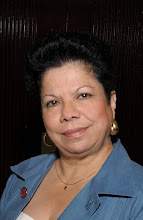As the market continues to receive foreclosures the amount of inventory available to choose from continues to make this a prime time to invest.
The government programs meant to help stabalize home owners in trouble and under water by modifing mortgages have left many dissapointed. The majority of the homewoners didn't qualify, others did qualify but then fell behind on their modified mortgages.
As unemployment continues to linger foreclosures continues to climb. The biggest trouble spots remains Nevada, Florida, Arizona, and California. If you are looking for a bargain in any of these areas then now is the time to purchase your dream home, an investment property or your vacation property.
Inventories of Bank owned properties are easily accessible by contacting a Realtor to search the Multiple Listing and negotiate the right deal. Another up and coming in popularity is the Auction method. Either way, the time is now for bargain hunters to find the right property.
9/26/2010
9/21/2010
Don't Drain The Bank By Spending
Everyone has at one time or another made an implusive purchase. The danger is when impulsive turns compulsive. Compulsive shopping can destroy finances, careers and relationships. In today's economy this behavior invites disaster.
So how do we overcome compulsive shopping?
Identify triggers
Compulsive shopping fills emotional voids of loneliness, lack of self-confidence and control. The emotional high comes the actual act of shopping.
Remove temptation
The best results comes from staying away from the mall, shopping websites, and putting away credit cards that provides the means by which to shop. You may also unsubscribe to retailer's emails.
Use money tools
By using simple household budget and shopping lists you can maintain focus on what are necessities vs unecessary shopping. Financial goals gives you a reason to save vs spending.
Find substitues for shopping
Since compulsive shopping fills an emotional need you must find a substitute activity such as exercise, volunteering, schedule time with family and friends.
So how do we overcome compulsive shopping?
Identify triggers
Compulsive shopping fills emotional voids of loneliness, lack of self-confidence and control. The emotional high comes the actual act of shopping.
Remove temptation
The best results comes from staying away from the mall, shopping websites, and putting away credit cards that provides the means by which to shop. You may also unsubscribe to retailer's emails.
Use money tools
By using simple household budget and shopping lists you can maintain focus on what are necessities vs unecessary shopping. Financial goals gives you a reason to save vs spending.
Find substitues for shopping
Since compulsive shopping fills an emotional need you must find a substitute activity such as exercise, volunteering, schedule time with family and friends.
9/07/2010
New FHA Reverse Mortgage Option
Starting early October FHA will unveil a variation to their Reverse Mortgage Plan in order to facilitate seniors involvement in the program.
FHA has annouced modifications to its Home Equity Conversion Mortgage HECM product which is a reverse mortgage loan insured by the federal government. HECM enables elderly homeowenrs (62 year or older) to borrow against the equity in their home without having to make traditional monthly payments. Under this program funds are advanced to the borrower and interest accrues, but the outstanding balance is not due until the last borrower leaves the home, sells or passes away. If the balance due upon settlement of the loan exceeds the value of the home, the FHA insurance covers the difference. The borrowers may draw down funds as a lump sum, established a line of credit or request fixed monthly payments for as long as they continue to live in the home.
The largest complaint among borrowers has been that the upfront costs were high. HUD responded by creating a variant on the standard HECM product that subtantially lowers those costs. The new product is called the HECM Saver. It provides lower upfront costs by eliminating the Mortgage Insurance Premium required to be paid upfront under the standard HECM option.
FHA has annouced modifications to its Home Equity Conversion Mortgage HECM product which is a reverse mortgage loan insured by the federal government. HECM enables elderly homeowenrs (62 year or older) to borrow against the equity in their home without having to make traditional monthly payments. Under this program funds are advanced to the borrower and interest accrues, but the outstanding balance is not due until the last borrower leaves the home, sells or passes away. If the balance due upon settlement of the loan exceeds the value of the home, the FHA insurance covers the difference. The borrowers may draw down funds as a lump sum, established a line of credit or request fixed monthly payments for as long as they continue to live in the home.
The largest complaint among borrowers has been that the upfront costs were high. HUD responded by creating a variant on the standard HECM product that subtantially lowers those costs. The new product is called the HECM Saver. It provides lower upfront costs by eliminating the Mortgage Insurance Premium required to be paid upfront under the standard HECM option.
Subscribe to:
Comments (Atom)




